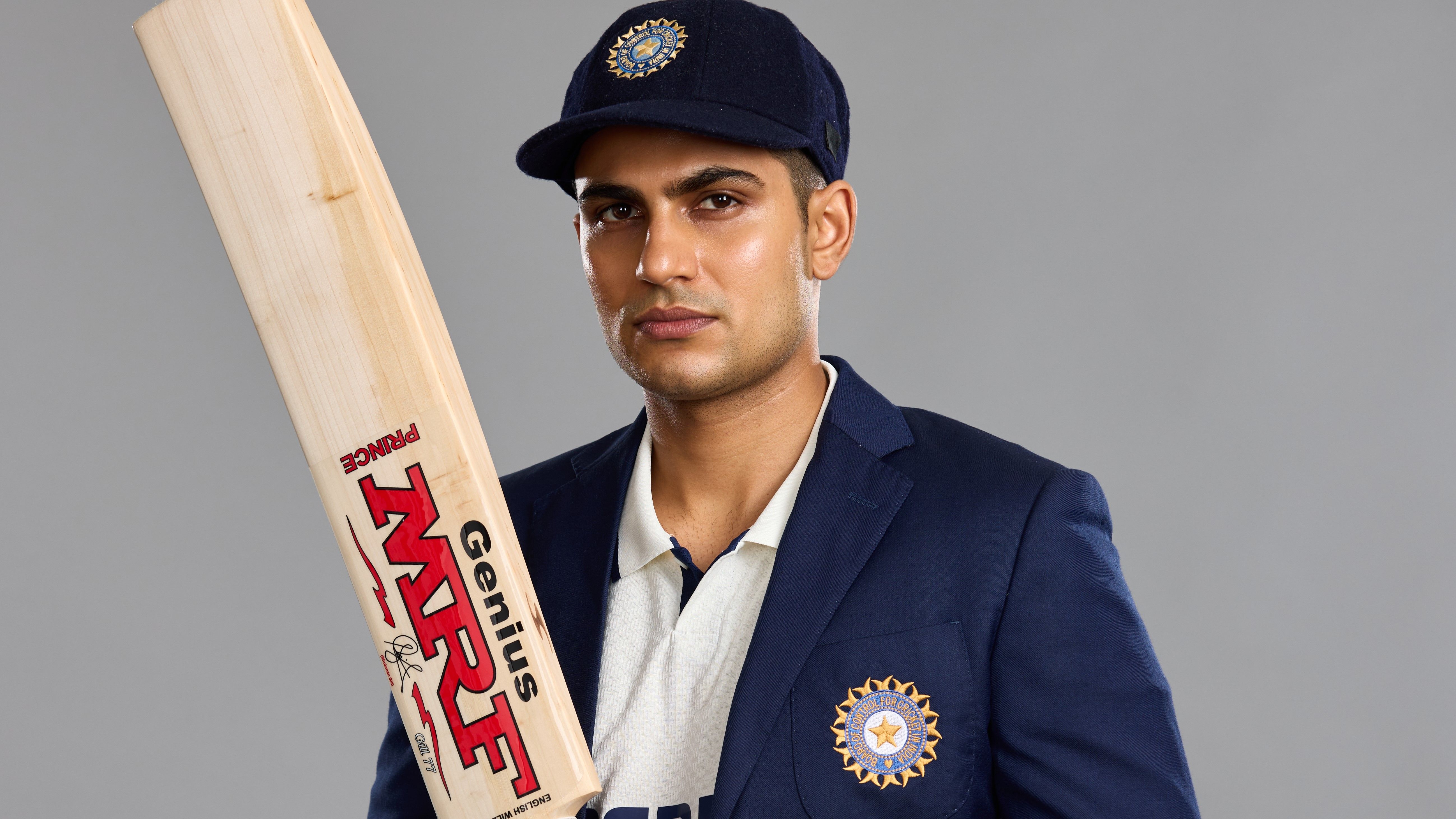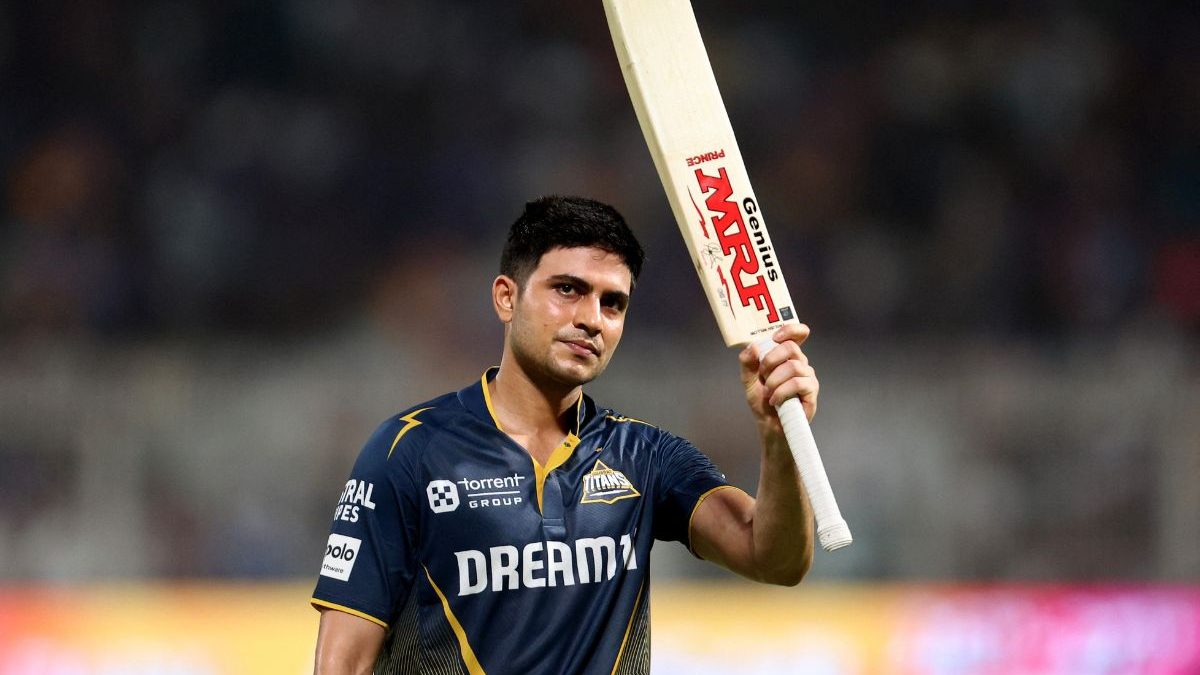In a sensational display of skill and composure, Shubman Gill has rewritten the record books by surpassing Virat Kohli’s long-standing record for the most runs scored by an Indian captain in a single Test match. The 25-year-old captain’s monumental innings of 269 runs in the first innings, followed by a commanding half-century in the second innings against England at Edgbaston, Birmingham, has not only set a new benchmark but also heralded the arrival of a new era in Indian Test cricket.
Shubman Gill’s achievement at Edgbaston has sent ripples through the cricketing world, with pundits and former players lauding his technique and temperament. The innings was a masterclass in adaptability, as Gill negotiated the swinging new ball under overcast skies before unleashing a flurry of boundaries against both pace and spin. His shot selection was impeccable, mixing classical drives with innovative strokes that kept the scoreboard ticking and the English bowlers under constant pressure. The maturity he displayed, especially in building partnerships with the middle order, was reminiscent of India’s greats but carried a flair uniquely his own.
The significance of Gill’s record-breaking performance goes beyond personal milestones. It has re-energized the Indian dressing room, instilling belief that the team can dominate in challenging overseas conditions. Teammates have spoken about the infectious confidence Gill brings to the field, noting how his calm presence helps settle nerves during tense moments. His willingness to take responsibility and lead from the front has set a new standard for the younger players, many of whom are experiencing Test cricket in England for the first time.
Gill’s leadership style has drawn comparisons to some of India’s most successful captains, yet he has managed to carve out his own identity. Unlike the more vocal or animated leaders of the past, Gill leads with quiet authority, trusting his instincts and backing his players. His on-field decisions—such as timely bowling changes and aggressive field placements—have been praised for their boldness and clarity. Off the field, he has fostered a culture of open communication, encouraging players to express themselves and contribute to team strategy.
The Edgbaston Test also highlighted Gill’s remarkable fitness and mental stamina. Batting for nearly nine hours across both innings, he maintained focus and intensity, rarely offering a chance to the opposition. This level of endurance is the result of rigorous training and a disciplined lifestyle, attributes that have become hallmarks of his career. Coaches and support staff have credited Gill’s work ethic as a key factor in his rapid rise to the top of international cricket.

1. Shubman Gill’s Record-Breaking Knock: Details and Significance
Gill’s innings of 269 in the first innings of the second Test against England is the highest individual score by an Indian captain in Test cricket, surpassing Virat Kohli’s 254* against South Africa in Pune in 2019. This remarkable feat was achieved in just his second Test as India’s captain, underscoring his maturity and leadership under pressure. Adding a half-century in the second innings, Gill amassed a total of 308 runs in the match, setting the record for the most runs scored by an Indian captain in a single Test match.
His performance is historic not only for the runs but also for the manner in which he led the team. Gill’s aggressive yet calculated style has inspired confidence in a young Indian side touring challenging English conditions. His ability to build innings, rotate the strike, and accelerate when needed has drawn praise from cricketing legends and analysts alike.
2. Breaking Multiple Records: Beyond Kohli’s Benchmark
Gill’s exploits at Edgbaston have seen him break several other records. He became the first Indian captain to score 250 or more in a Test innings and now holds the record for the most runs by an Indian captain after two Tests, surpassing both Kohli and Sunil Gavaskar. With 464 runs across his first two Tests as captain, he leads the chart ahead of Kohli’s 449 and Gavaskar’s 429.
Furthermore, Gill is only the sixth Indian captain to register a double century in Test cricket, joining an elite group that includes legends like MS Dhoni, Sachin Tendulkar, and Mansoor Ali Khan Pataudi. His innings also marks the highest score by an Indian captain on English soil, surpassing Mohammad Azharuddin’s previous best.
3. Impact on the Series and Team India’s Prospects
Gill’s monumental innings has been pivotal in India’s commanding position in the ongoing Test series against England. His runs have helped India build a massive first-innings total, putting immense pressure on the hosts. At the time of reporting, India leads by over 390 runs, setting the stage for a potential record-breaking chase or a dominant victory.
As captain, Gill’s calm demeanor and tactical acumen have been evident in his field placements, bowling changes, and overall team management. His leadership has invigorated a young squad, blending experience and youth, and has brought a renewed sense of purpose and ambition to Indian Test cricket.

4. The Rise of a New Leader: Shubman Gill’s Journey and Future
Shubman Gill’s rise to captaincy and record-breaking form is a testament to his hard work, talent, and resilience. Hailing from Fazilka, Punjab, Gill has been touted as one of India’s brightest batting prospects since his junior cricket days. His elegant stroke play, combined with mental toughness, has made him a fan favorite and a respected figure in the dressing room.
Taking over the Test captaincy after Rohit Sharma’s retirement, Gill faced immense expectations and scrutiny. However, his performances in England have silenced critics and established him as a leader capable of steering India to new heights. With several years ahead in his career, Gill’s record-breaking start is just the beginning of what promises to be a legendary tenure.
Cricket fans across India and the diaspora have celebrated Gill’s feat with an outpouring of admiration on social media. Hashtags related to his record trended for days, and congratulatory messages poured in from cricketing legends, politicians, and celebrities. For many, Gill’s success represents the promise of a new era—one where Indian cricket continues to evolve and set new benchmarks on the global stage. His journey from a prodigious talent in Punjab to the captaincy of the national team has inspired countless young cricketers to dream big.
The English press, while lamenting the home team’s inability to contain Gill, has acknowledged the brilliance of his batting. Commentators have described his innings as one of the finest by a visiting batsman in recent memory, noting the way he adapted to the changing pitch conditions and neutralized England’s vaunted bowling attack. The respect shown by the opposition, including a standing ovation as Gill left the field, underscored the magnitude of his accomplishment.)
)
Gill’s record-breaking Test has also reignited debates about the future of Indian Test cricket. Analysts are now questioning whether this young squad, under Gill’s leadership, could become one of the most dominant sides in history. The blend of youth and experience, coupled with a fearless approach, has given rise to optimism that India can consistently win overseas and challenge for the top spot in the ICC Test rankings. Gill’s own ambitions, as stated in post-match interviews, include winning series in Australia, South Africa, and England—goals that now seem increasingly attainable.
The commercial impact of Gill’s heroics has not gone unnoticed. Brands and sponsors have lined up to associate with the young captain, whose popularity has soared following his record-breaking performance. Merchandise bearing his name and likeness has seen a surge in sales, and cricket academies across the country have reported increased enrollment, with aspiring players eager to emulate their new hero. Gill’s marketability, combined with his on-field achievements, positions him as one of the faces of Indian sport for years to come.
In the broader context of Indian cricket, Gill’s success is a testament to the strength of the country’s talent pipeline. The seamless transition from one generation of stars to another has been facilitated by robust domestic competitions, world-class coaching, and a culture that values both tradition and innovation. Gill’s journey, marked by perseverance and adaptability, exemplifies the qualities that have come to define Indian cricket in the modern era.
Looking ahead, the challenge for Gill and his team will be to sustain this level of excellence and build on the momentum generated by their historic triumph in England. The cricketing calendar is packed with high-profile series and tournaments, and expectations will be higher than ever. If Gill’s recent performances are any indication, Indian fans can look forward to more memorable moments and, perhaps, the dawn of a new golden age in Test cricket.
As the dust settles on this historic Test match, cricket experts are already speculating about the long-term impact of Shubman Gill’s achievement on the Indian team’s culture and strategy. His record-breaking innings is likely to influence the way future Indian captains approach batting in challenging conditions, emphasizing patience, adaptability, and aggressive intent when opportunities arise. Coaches at all levels are expected to use Gill’s example as a teaching tool, highlighting the value of mental resilience and technical mastery in the longest format of the game.
For Shubman Gill personally, this milestone marks the beginning of a new chapter in his career. The expectations will only grow from here, but his calm demeanor and relentless pursuit of excellence suggest he is well-equipped to handle the pressures of leadership and international stardom. As he continues to break records and inspire a new generation of cricketers, Gill’s legacy as one of India’s greatest Test captains appears to be firmly in the making.
Follow: Shubman Gill

